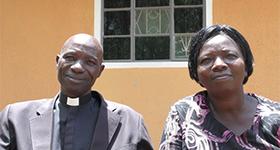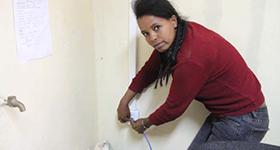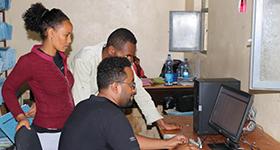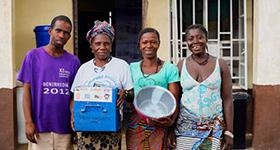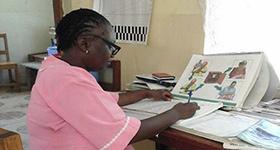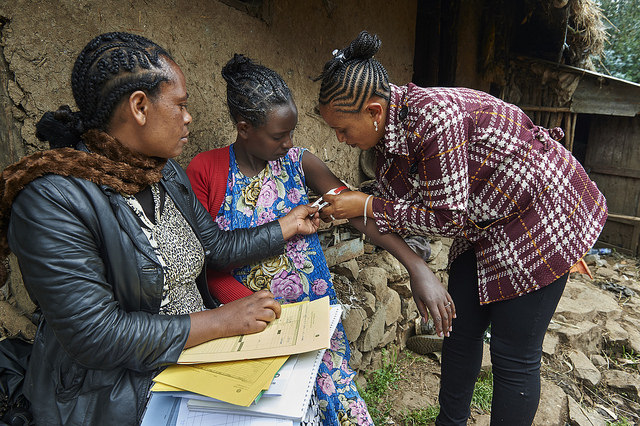
Mekdes measures a pregnant woman’s upper arm circumference as part of her antenatal examination, as Zewdinesh records the findings on the health card.
Zewdinesh and Mekdes are health extension workers (HEWs) who provide basic health services to about 9,980 people in Chancho Buba Kebele of Sululta Woreda in Oromia. People in Oromia, the largest of Ethiopia’s 11 regions, visit health posts to get basic care. Health posts are staffed by two or more HEWs, who also make house-to-house visits to provide services to pregnant women, children, and other family members. In this particular region, the Ethiopian Federal Ministry of Health introduced (FMOH) a family folder-based community health information system (CHIS) in 2013 to help HEWs follow-up with household members and ensure continuity of care. The folder contains health cards for each member of the household and is used to identify those who need follow-on services such as family planning and growth monitoring and immunization services for children. Zewdinesh and Mekdes are among the 13,862 HEWs who work at more than 5,889 health posts in Oromia and who have been trained on CHIS.
The USAID-funded Advancing Partners & Communities project has been supporting USAID's Health Management Information Systems (HMIS) Scale-Up project, managed by JSI & Training Institute, Inc., by providing technical and other support to the FMOH, the regional health bureaus of Oromia and the Southern Nations Nationalities and Peoples’ Region in particular, and other regions in general to strengthen HMIS including the CHIS. Project staff work with the woreda health offices and zonal health departments to conduct training, supportive supervisory visits, and data quality assessments. The ultimate goal of the project is to contribute to the sustainable implementation of FMOH’s information revolution agenda and build a culture of information use within the health system.
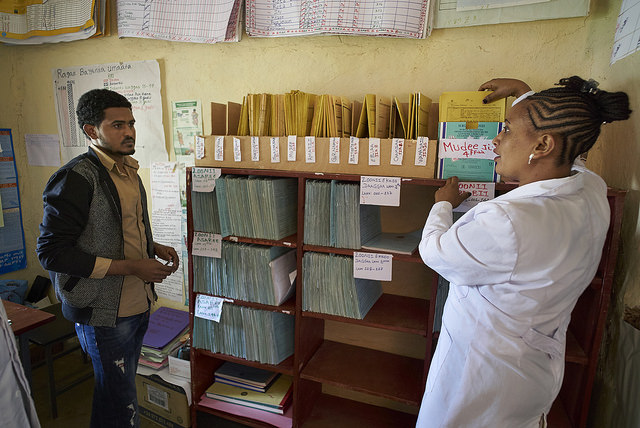
Mekdes explains the Tickler file box to Tesfu, a zonal health department employee.
Zewdinesh and Mekdes, who are based at the Chancho Health Post, use the information in the family folder to plan their household visits. They list the households along the path of their routine visits and carry the relevant health cards with them. The HEWs use the Tickler file system, which has slots for 12 months. Health cards of pregnant women, people using family planning methods, children receiving vaccination, and people on long-term care are filed in the slot corresponding to the month of their next visit. This system is a tremendously helpful way for HEWs to organize their work.
Although HEWs are comfortable using the Tickler file and the CHIS in general, they are not solely responsible for implementing them. They are supported by woreda health offices, zonal health department, and the Oromia Regional Health Bureau.
“I use this system to keep health cards in separate boxes. When a client with some significant health episode or need like antenatal care, TB, or family planning is identified for the next follow-up visit, the family folder is filed on the shelf according his/her household number,” - Mekdes

